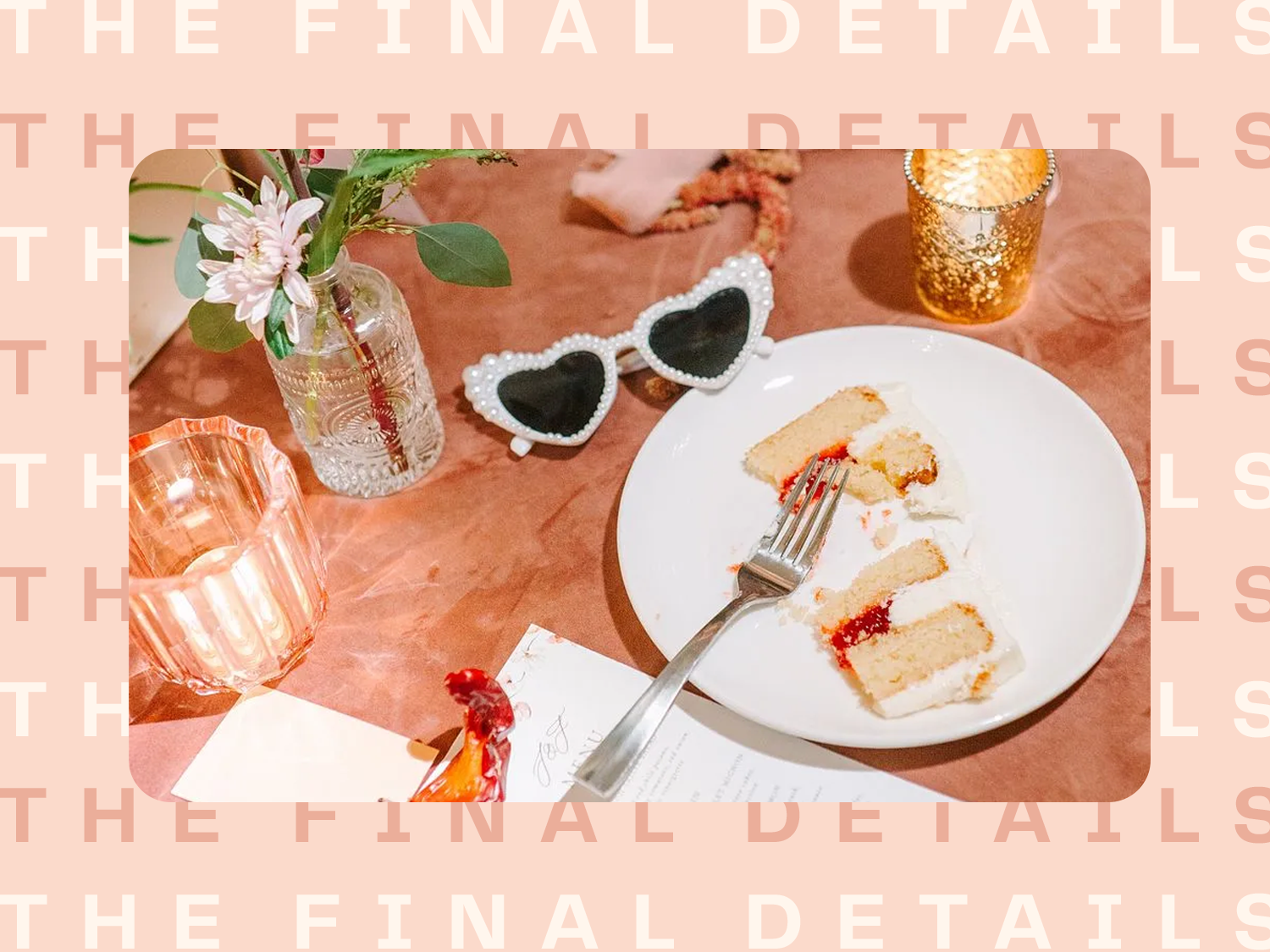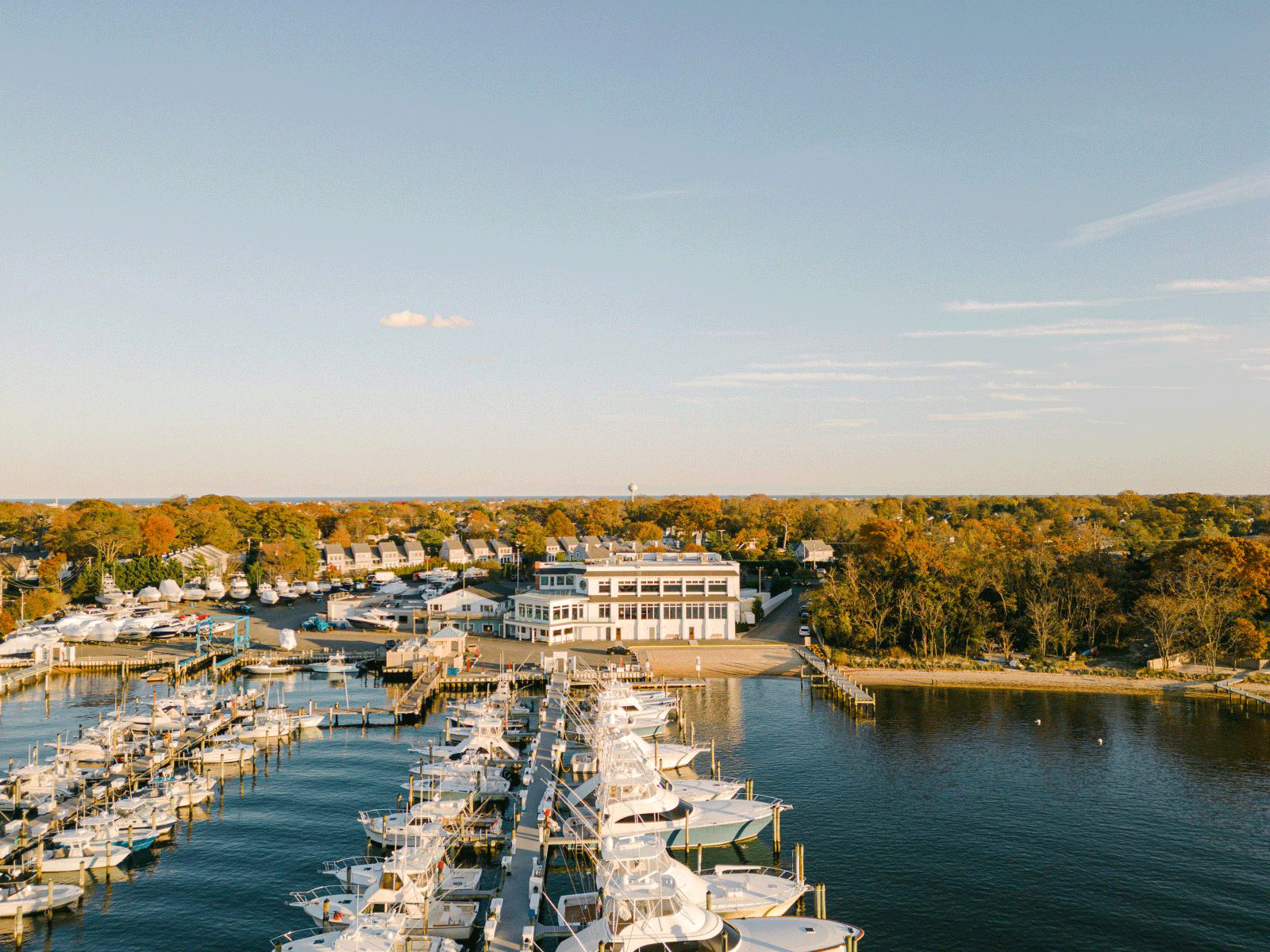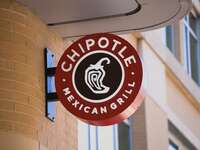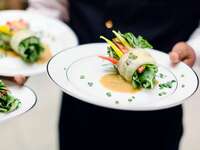Wedding Catering Pros Share the Best Way to Have Warm Food at a Wedding
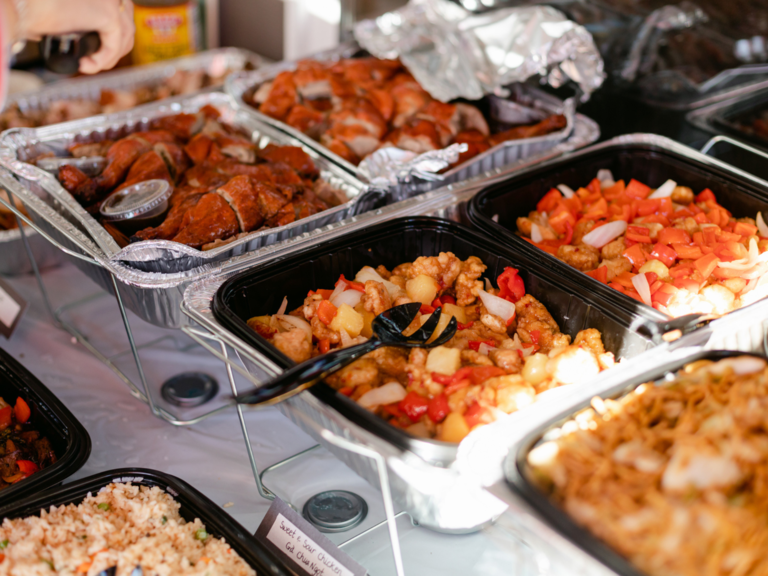
If you're looking for the best way to have warm food at a wedding and want to ensure it stays that way, you've landed on the right page. After all, nothing is more important than keeping you, your partner and your guests safe while celebrating your love and enjoying delicious food throughout your celebration.
"Warm food enhances the taste, texture, overall enjoyment of the meal and more importantly, it prevents bacteria growth, which can occur when food is left in the 'danger zone' (40°F–140°F) for too long," explains Tanner Marino, executive chef of Avenue with Table 301 Catering in Greenville, South Carolina. "Serving improperly maintained food can lead to food-borne illnesses, potentially ruining a special day."
Read on for tips on how to keep food warm at a wedding to ensure you're serving the best-tasting and safest food for your guests. To find a caterer near you, The Knot Vendor Marketplace is a great resource to find the best fit depending on your location, budget, catering type, cuisine preference and dietary options (all of which can be filtered with a few simple clicks). After you enter a location, you can filter by price, food and catering type (including buffet, family style, etc), cuisine and dietary options.
In this article:
How to Keep Food Warm at a Wedding
Have you ever wondered, "How do caterers keep food hot?" Continue reading for some best practice information to keep your guests (and their stomachs) happy.
Hire a Licensed Caterer
Although working with a wedding caterer on-site on your wedding day isn't a requirement, it can help mitigate your food safety questions and concerns about how to keep food warm for a wedding. Jacob Hatfield, director of operations at Catering by Michaels in Chicago, notes that when you hire a trained culinary professional such as a caterer, a restaurant, private chef or a venue's culinary team, they're knowledgeable about the many nuances regarding food temperature and can facilitate a seamless (and safe) dining experience.
However, there are some questions for potential caterers you want to ask, such as their average wedding catering cost (with which you can compare and contrast catering prices using The Knot Budget Advisor), in addition to affordable wedding food you can bring to your special day. You can also determine how they factor into the insurance for your wedding (if they do).
Use the Proper Warming Devices
Although it may be tempting to order a batch of canned heaters ahead of your wedding day, it is important to note that warming devices are not a one-size-fits-all solution. There are many different wedding food ideas, each of which retains heat differently via various appliances with direct or indirect heat. While Hatfield notes that canned heaters may work for potluck or DIY menus, they may not be the best option for soups and stews, where a crockpot or slow cooker may work best.
When it comes to how to keep wedding buffet food hot, Mark Greenfield, director of culinary operations at Executive Hotels & Resorts in Vancouver, British Columbia, recommends using a combination of chafing dishes and sternos and a combination of heat lamps and hot-holding cabinets for plated dinners.
Craft a Simple Menu
A simple way of keeping food warm at a wedding is by creating a simple menu with items that retain heat. "Serve dense foods that will retain heat longer, for example, casserole-style items," Hatfield advises. "You can make those in batches if need be, also to ensure fresh food is always coming out to your guests." It's equally important to know the high-risk wedding food to avoid, such as sushi, seafood and cheese.
Utilize Transport Containers
If you opt for an off-site caterer, it's a good idea to invest in transport containers. "Insulated transport containers are essential for off-site catering or food pickups, ensuring hot food stays hot en route to the venue," Greenfield explains. Hatfield adds that your caterer may have a Cambro (or thermal bag) available to borrow to maintain food warmth and freshness until you arrive at your venue.
Plan a Barbecue
Hatfield notes that hosting a barbecue-style wedding reception is a surefire way to keep your wedding cuisine warm. Since you'll serve your guests their food directly from the grill, you won't have to worry as much about transport time as you will about getting your guests off the dance floor.
Keeping Wedding Food Warm Safety Tips
The last thing you want is for your guests to suffer from food poisoning that could be easily avoided. Keeping wedding food warm can prevent bacteria and spoilage from occurring.
Monitor the Temperature
Just because your wedding food is initially cooked to its optimal temperature doesn't mean it will stay that way. "A common mistake for caterers is not checking temperatures and assuming the food is warm enough or cooked thoroughly without using a thermometer," Marino explains. "Use a thermometer to check temperatures and refresh food often." Greenfield adds that, in general, most hot food needs to maintain a 140°F temperature or hotter.
Keep Serving Sizes and Times Small
The smaller the better when it comes to keeping food warm at weddings. No, that doesn't mean you have to have a small amount of food available for your guests. It simply means keeping initial servings small and within a smaller window to prevent food spoilage. "The longer food sits, the greater the risk of temperature fluctuations," Greenfield explains. "Serve in batches as needed."
Marino notes that this is particularly needed if you're looking for wedding buffet ideas (or wedding taco bar ideas) as the food must be regularly rotated, and therefore, extra catering team members must be allocated to ensure quality (and freshness) throughout your event. The same can be said for a family-style wedding dinner, as serving food quickly and rotating items as needed (and while they're still hot) is key. If you opt for a plated dinner, he adds that the dishes must be served as they are cooked and plated. "The goal is to reduce the amount of time from oven to plate," Hatfield explains.
Keep Dishes Contained Until Serving Time
Whether you use chafing dishes, food warming trays, or another type of dish to keep your wedding food warm, Marino says that checking that they are closed and/or that your food is wrapped up is vital. You want to avoid exposing your food to any unwanted elements to prevent bacteria from growing. This is especially important to note when it comes to potluck wedding etiquette. Just make sure not to overfill your dishes, as it could affect the heating process.

